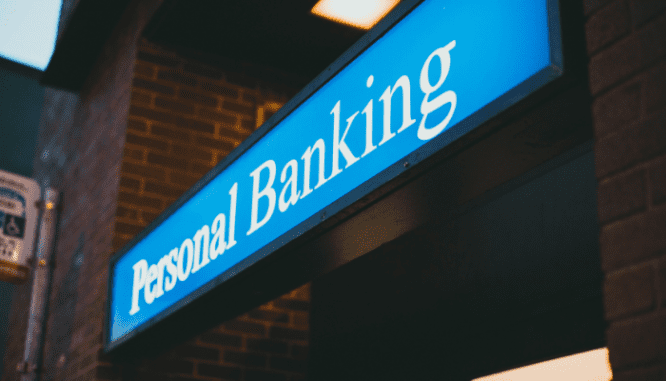8 Signs That The Next Housing Recession Is Looming (And What to Do)
- Published on
- 5 min read
-
 Summer Rylander Contributing AuthorClose
Summer Rylander Contributing AuthorClose Summer Rylander Contributing Author
Summer Rylander Contributing AuthorSummer Rylander is a freelance writer and editor with an abundant background in real estate. A former residential real estate agent in the Columbia, SC area and sales administrator at a commercial real estate firm, she now uses this experience to help guide readers. Summer currently resides in Nuremberg, Germany, where she fulfills her passions of food and travel and avoids her dislikes of mayonnaise and being trapped in an office.
Although several experts predicted that the next housing recession would take place in 2020, with the benefit of hindsight, we know that 2020 was a hot seller’s market across the United States. Between favorable mortgage interest rates and a low inventory of available homes for sale, buyers were submitting purchase offers of thousands of dollars over asking price, and sellers (and their agents!) were fielding multiple offers.
When it comes to predicting the next housing recession, we often look to economists. But, as in-touch and analytical as economists may be, they aren’t magicians or fortune tellers — they’re just skilled at looking for and identifying signals that indicate the market could be changing.
Today, with the help of housing market experts, including top New Bedford, Massachusetts-based real estate agent Byron Ford, Jr., we’re exploring a few of these key signs of an economic downturn as they relate to housing.

First, what exactly is a housing recession?
As Ford puts it, a housing recession is “a slowdown in business. Less properties, less sales. And conceivably, a decrease in [property] value.”
Since housing is only one aspect of the greater economy, there are usually other signs that a downturn in real estate activity may be on the horizon.
Recession sign #1: Widespread job loss
A degree in economics isn’t necessary to understand that people need to earn money in order to buy and continue to pay for a home. Recessions and unemployment go hand-in-hand — though the question of which comes first is akin to debating whether the chicken comes before the egg.
When people lose their jobs, they spend less money. Dining out and recreational shopping are often the first expenses to be trimmed, and certainly larger-ticket purchases like vacations, cars, and homes are relegated to the “maybe later” category.
And in the context of widespread job loss, when hundreds of thousands — perhaps millions — of people are out of a job, and collective spending slows to a trickle, companies often resort to layoffs to stay afloat, and some businesses shutter entirely. This leads to more job loss, a further reduction in spending, and the cycle continues.
Even if someone hasn’t lost their job, when unemployment numbers are high, consumer confidence — and consumer spending, in turn — goes down.
“A confidence index is relevant to assessing an impending recession,” explains Chris McGuire, real estate and finance expert.
“How people feel can reflect the economic situation and how they view national economic activity.”
So, when there’s talk of a recession, it’s not unusual for people to keep their cash close. And for the average person, buying real estate during a recession simply is not practical — if it’s even possible at all.
Recession sign #2: GDP is down
The International Monetary Fund defines GDP (gross domestic product) as a measurement of the “monetary value of final goods and services produced in a country in a given period of time.”
When GDP is down, it means there’s significantly less demand for products and services — see also: unemployment — and falling GDP is, for this reason, a reliable indicator of an economic recession.
Recession sign #3: Bailouts are called upon
Government-issued economic bailouts are designed to save an industry, or its major player(s), from total collapse.
General Motors and Chrysler have been auto industry bailout recipients, and big names like Bank of America, Wells Fargo, and Goldman Sachs are just a few of those bailed out in the banking industry.
When it comes to real estate, government-sponsored enterprises Fannie Mae and Freddie Mac have also received assistance.

Recession sign #4: Employment diversity is low
In this case, we’re referring to the diversity of industry. If a particular region relies too heavily upon one or two particular industries, then the local economy can quickly go downhill when these industries are compromised.
If, for example, a majority of the residents of a mid-sized town are employed by a home appliance manufacturer, and the company suddenly needs to implement a reduction of force to cut costs, it won’t take long for the town to feel those effects. Laid-off workers won’t be frequenting shops, restaurants, or service providers. And it may take significant time for the local economy to recover due to a lack of employment opportunities, versus in a larger city with a greater variety of industry.
Housing-specific recession sign #5: Loose lending standards
Relaxed lending standards were a contributing factor to the Great Recession of 2008.
While terms like “loose” and “relaxed” are arguably subjective, in the context of a lender offering a mortgage, this typically means that credit history and proof of income standards are not as stringent. In short, there are fewer hoops a borrower has to jump through to prove their financial worthiness before being approved for a loan.
Housing-specific recession sign #6: Home loans are delinquent or in default
When lenders are giving money to more people, more of those loans may be risky, and therefore more of them could default and possibly foreclose. And when there’s an uptick in delinquent or defaulted mortgage loans, this could be a sign of the next housing recession.
What’s the difference? Well, delinquent simply means that the borrower is behind on payments. After a certain period of time (which can vary between lenders, but 90 days is fairly standard) a delinquent loan is considered to be in default. The borrower has failed to repay the loan as agreed upon in the contract, and the lender can now take action to recoup their losses.
Default doesn’t automatically mean foreclosure — preforeclosure and short sale transactions can offer relief — but when lots of borrowers have defaulted, it isn’t great news for the housing market. Though forbearance programs (like the one offered during the COVID-19 pandemic) will help to keep default numbers low, they aren’t a long-term solution.
Sites like Attom and CoreLogic track this kind of data and, on a more local level, because notices of default on mortgages are considered public record, you can search the recorder’s office in your county.
Housing-specific recession sign #7: Home equity is stretched
Building equity is every homeowner’s goal. Between mortgage payments and property values increasing over time, homeowners typically find themselves with a cushion between what they owe on their home and its current market value.
But equity isn’t always a guarantee. If property values fall, borrowers can find themselves in a bind if they owe more than what their home is worth. This is doubly true if a homeowner has leveraged their home equity for upgrades, repairs, or another major expense. On a widespread level, stretched equity could spur a recession.
Housing-specific recession sign #8: Loan-to-value ratios are high
Lenders consider the loan-to-value ratio (LTV) when determining whether to approve or deny a mortgage application. Few buyers will qualify to borrow 100% of a property’s value. An LTV of less than 80% is usually preferred, and anything over 80% will likely require the purchase of mortgage insurance for those using a conventional loan.
Similarly, there’s a ratio between the loan amount and the household income of the buyer. If a buyer can just barely afford their mortgage payment, any financial bump in the road could cause big problems.
“The main factor I’m looking for [in a potential recession] is when the price of homes outpace the growth of income in families,” says Justin Parker, a real estate investment expert who closely monitors the housing market.
“People will be left with only two options: Either to rent or buy a home they can’t afford. This is a huge sign that a recession may be on the horizon.”

What’s a hopeful homebuyer to do?
Since there’s never a guarantee that a housing recession will or won’t happen within a specified period of time, your best bet is always to assess current information at the time you’re ready to consider buying a home — whether that means today, in six months, or in three years.
If you think you might want to buy a house, Ford has a pertinent reminder: “You can’t gamble on where the market’s going to be.”
You can, however, always reach out to experts for advice and to ensure that you’re working with the latest information. Talk to an experienced real estate agent in your area, talk to a mortgage lender, or sit down with a financial advisor to gain a better understanding of what your options may be.
If buying property makes sense for you financially, and you’ve found a home you love — well, real estate has long been considered one of the best investments you can make.
And, as Ford points out, “You need a place to live anyway. The housing market, in my opinion, is still a pretty safe investment.”
Header Image Source: (Jason Briscoe / Unsplash)
